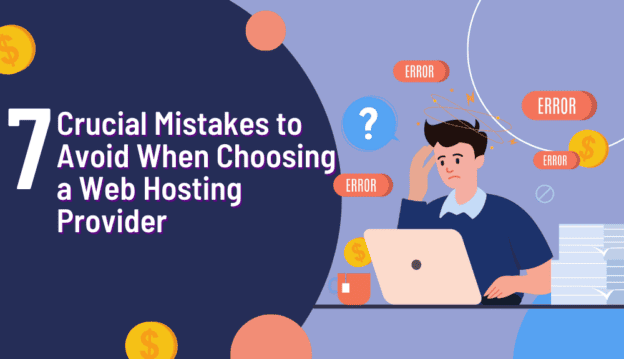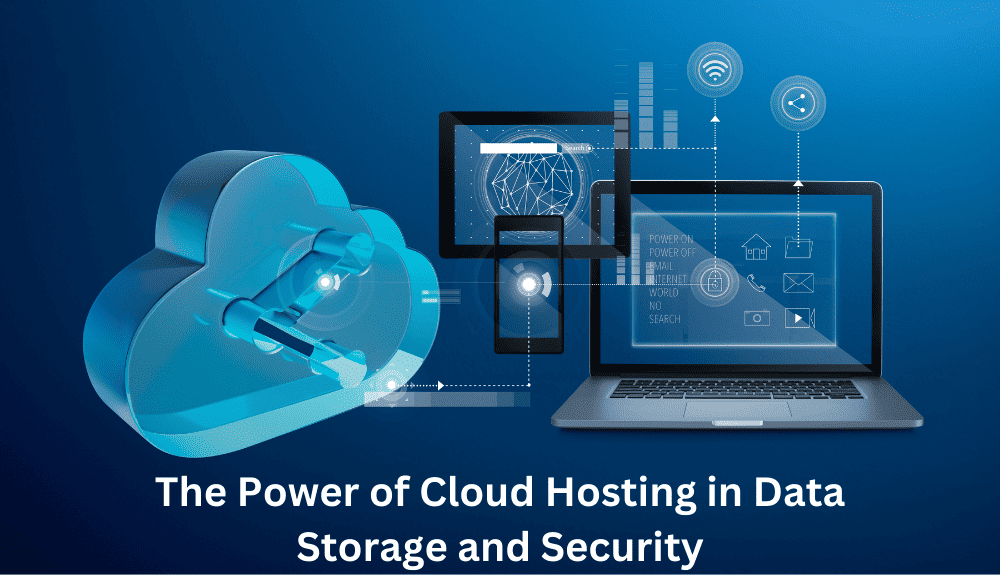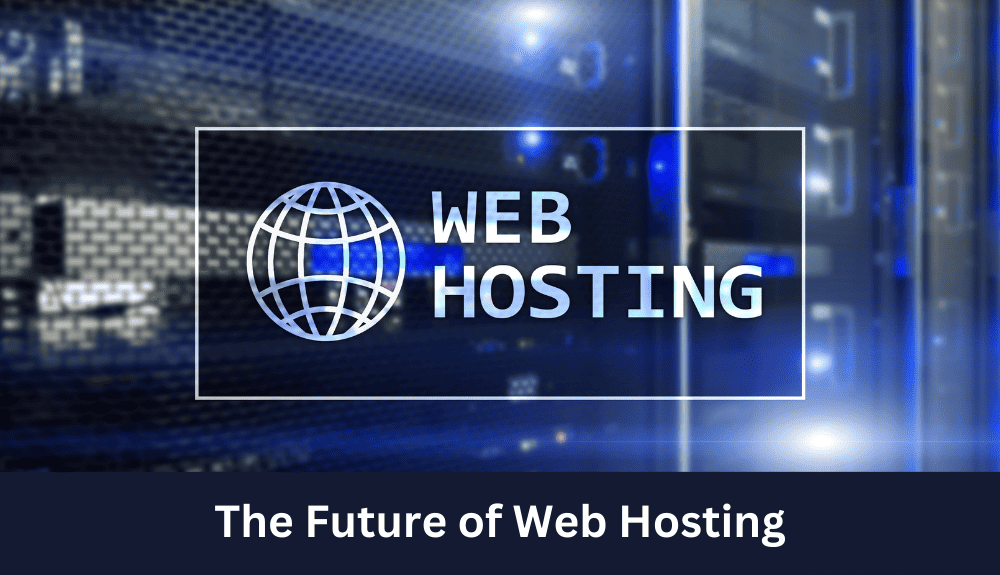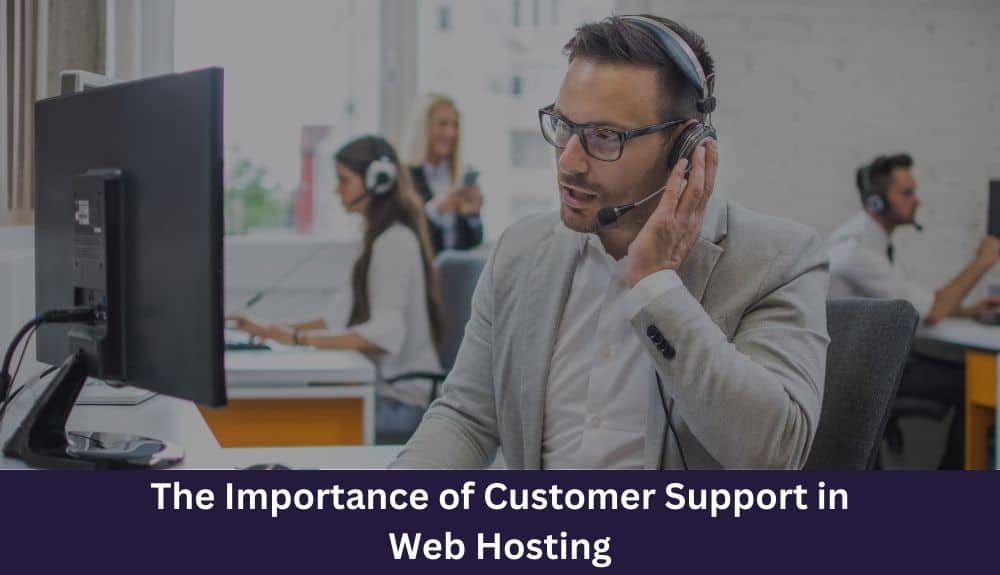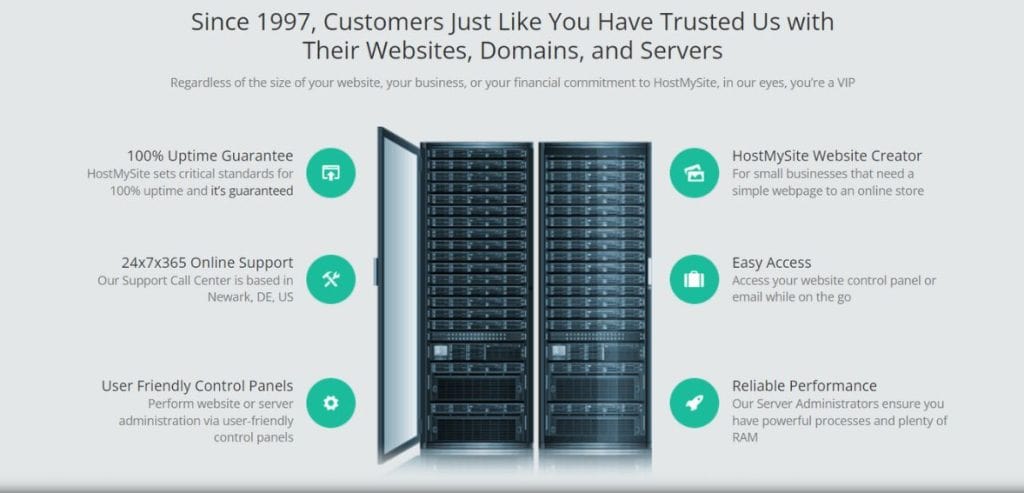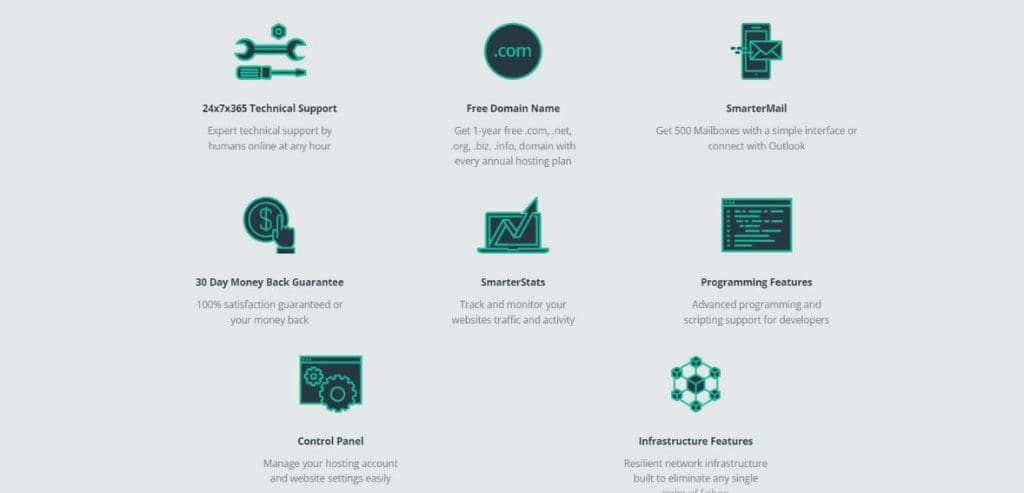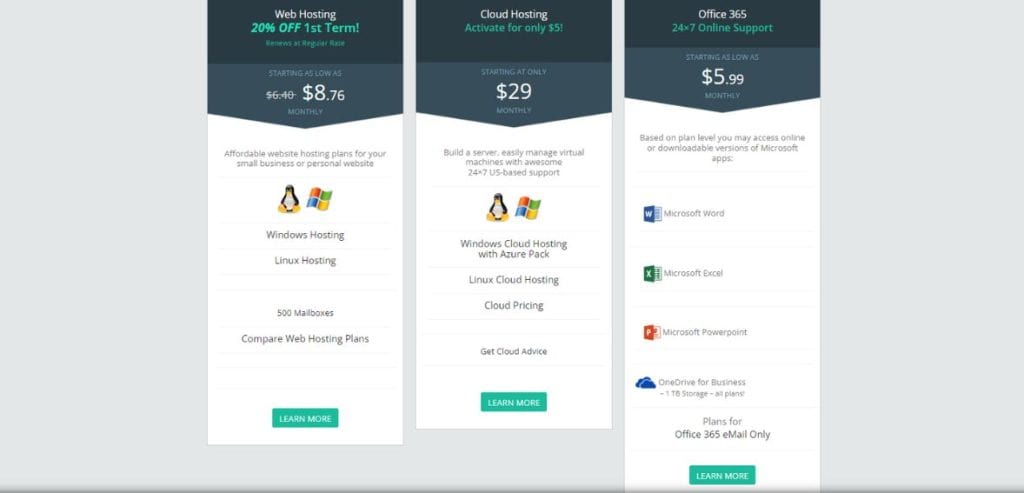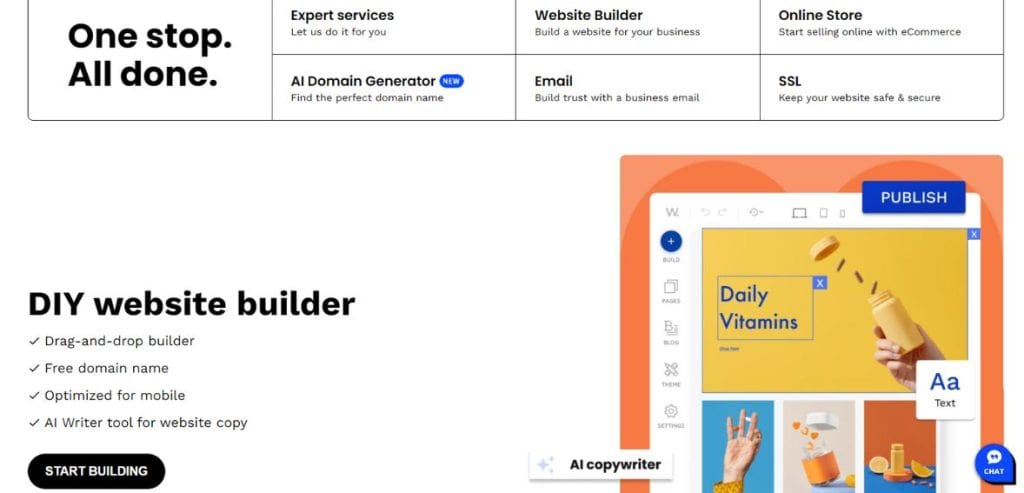Are you on the search for the perfect web hosting provider? Look no further! In this blog, we’ll walk you through the 7 crucial mistakes to avoid when choosing a web hosting provider, ensuring you make an informed decision that aligns with your needs.
Throughout this blog, we’ll dive deep into the common pitfalls people encounter when selecting a web hosting provider. By avoiding these mistakes, you’ll save time, money, and headaches in the long run. Whether you’re a small business owner, a blogger, or an entrepreneur, this information is essential for maximizing your website’s performance and ensuring a seamless online experience for your visitors.
Join us as we navigate the intricacies of web hosting providers and equip you with the knowledge you need to make the best decision for your online presence.
1. Not Conducting Thorough Research
When it comes to choosing a web hosting provider, one of the most crucial mistakes you can make is not conducting thorough research. Many individuals and businesses jump into selecting a hosting provider without fully understanding their specific needs and the options available to them. This often leads to dissatisfaction and a poor online presence.
To avoid this mistake, it is essential to invest time and effort into conducting thorough research. Here are some steps you should take:
1.1 Identify Your Specific Needs:
Before you start your research, it is important to determine what you require from a web hosting provider. Consider factors such as the size and nature of your website, expected traffic, storage needs, and any specific features or platforms you require. This will help you narrow down your options and choose a provider that offers the services you need.
1.2 Read Online Reviews:
One of the most valuable resources at your disposal is online reviews. Take the time to read reviews from real customers who have used the hosting providers you are considering. Look for patterns and pay attention to both positive and negative feedback. This will give you insights into the quality of service, customer support, and overall user experience.
1.3 Compare Plans and Pricing:
Different hosting providers offer various plans and pricing options. It is crucial to compare and evaluate these offerings to ensure you are getting the best value for your money. Look beyond the initial cost and consider factors such as bandwidth limits, server uptime guarantees, security features, and scalability options. Make sure the plan aligns with your current and future needs.
1.4 Check Customer Support:
Having reliable customer support is essential, especially when you encounter technical difficulties or have questions. Look for providers that offer multiple support channels such as live chat, phone, and email. Additionally, try reaching out to their customer support team with some pre-sale questions to gauge their responsiveness and helpfulness.
1.5 Look for Money-Back or Refund Guarantees:
A reputable hosting provider will often offer a money-back guarantee or refund policy. This demonstrates their confidence in the quality of their services. Look for such guarantees as they provide a safety net in case you are unsatisfied with the hosting service in the initial period.
1.6 Consider the Importance of Online Reputation:
In the digital age, a good online reputation is crucial for any business. Look for hosting providers with positive online reputations and avoid those with recurring negative reviews.
2. Overlooking the Importance of Customer Support
When choosing a web hosting provider, many people tend to focus solely on the technical aspects like server speed and uptime. While these factors are indeed crucial, it’s equally important to consider the quality of customer support provided by the hosting company. Here are some common mistakes to avoid when it comes to customer support:
1. Neglecting to check the availability of customer support channels: Before committing to a web host, it’s essential to ensure they offer multiple support channels such as live chat, email, and phone support. This ensures that you’ll have various options to reach out to them in case of any issues or emergencies.
2. Not researching the average response time: When you encounter a technical issue or have a query, quick resolutions are vital for the smooth operation of your website. Take the time to research the web host’s average response time for customer inquiries. A prompt and efficient response can save you valuable time and prevent potential disruptions to your online presence.
3. Ignoring the quality of customer support: It’s not just about the speed of response; the quality of customer support matters too. Look for hosting providers with a reputation for having knowledgeable and helpful support staff. Reading online reviews and testimonials from current or past customers can give you insights into the level of service you can expect.
4. Underestimating the significance of 24/7 customer support: Technical issues can arise at any time, day or night. Opting for a hosting provider that offers round-the-clock customer support ensures that help is available whenever you need it, regardless of time zones or holidays.
5. Overlooking the transparency of the support process: An open and transparent support process is essential for smooth communication and issue resolution. Hosting companies that provide detailed information about their support system, including ticketing systems or support portals, can streamline the troubleshooting process and ensure efficient communication between you and the support team.
💡 key Takeaway: When choosing a web hosting provider, don’t overlook the importance of customer support. Research the availability, response time, quality, and transparency of their support channels to ensure a smooth and hassle-free hosting experience.
3. Prioritizing Free Hosting Services Over Quality
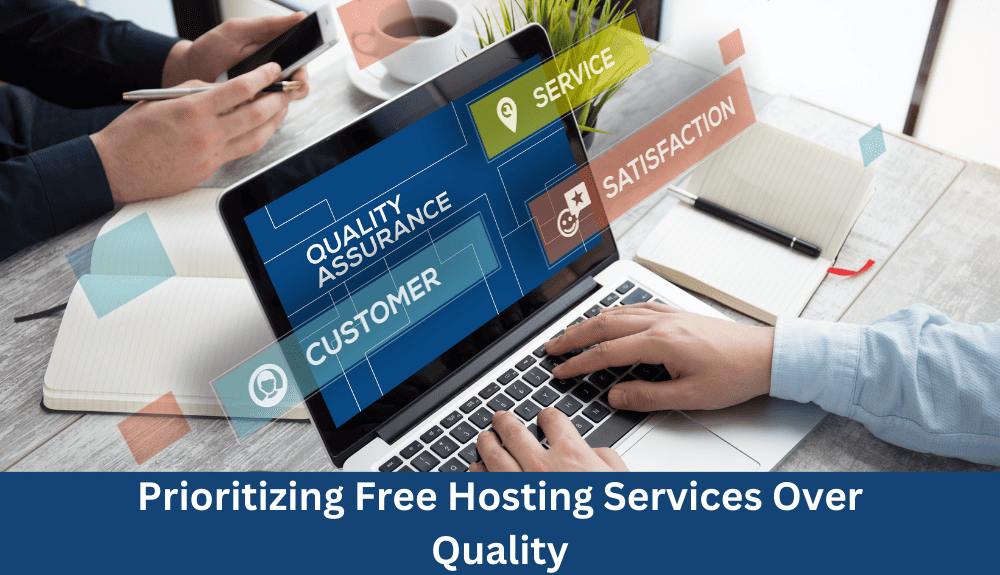
In today’s digital age, having an online presence is crucial for businesses and individuals alike. One of the key elements of establishing an online presence is choosing a reliable web hosting provider. Unfortunately, one common mistake that many people make is prioritizing free hosting services over quality. While the allure of a free service may be tempting, it often comes with significant drawbacks and limitations.
Here are some reasons why prioritizing free hosting services can be a crucial mistake:
1. Limited Resources: Free hosting services often come with restricted resources such as limited storage, bandwidth, and server speed. This can negatively impact your website’s performance, leading to slow loading times and a frustrating user experience.
2. Lack of Customer Support: With free hosting services, customer support is usually minimal or nonexistent. When technical issues arise or you need assistance, the lack of support can be frustrating and time-consuming. On the other hand, reputable paid hosting providers typically offer 24/7 customer support through various channels such as live chat, email, or phone.
3. Questionable Reliability: Free hosting services may lack the robust infrastructure and reliability of paid providers. Since they rely on alternative revenue streams (such as advertisements), their servers might experience frequent downtime or slow response times. This can harm your website’s visibility and reputation, particularly if you run an online store or rely on search engine traffic.
4. Limited Control and Customization: Free hosting services often offer limited control over website management and customization options. If you have specific needs or want to scale your website in the future, you may find yourself restricted by the limitations of the free service. Opting for a paid hosting provider gives you greater flexibility and control over your website’s functionality and customization.
5. Security Concerns: Free hosting services may not prioritize security measures as much as paid providers. Data breaches and vulnerabilities can expose your website to hackings, malware, and other security threats. Paid hosting providers typically invest in robust security measures, including regular data backups, SSL certificates, and firewall protection.
💡 key Takeaway: When choosing a web hosting provider, it’s crucial to prioritize quality over the allure of a free service. Paid hosting providers offer more resources, reliable customer support, enhanced customization options, better security measures, and improved website performance. Investing in a reputable hosting provider will ensure a smooth online experience for your business or personal website.
4. Not Assessing Specific Needs and Requirements
When it comes to choosing a web hosting provider, one crucial mistake that many people make is not assessing their specific needs and requirements. Each website has unique characteristics and goals, and it’s important to align your hosting provider with those specific needs. Here are some key factors to consider when assessing your requirements:
1. Website Traffic: Evaluate the estimated amount of traffic your website will receive. If you expect high traffic volumes, you may need a hosting provider that can handle increased bandwidth and offer scalable solutions.
2. Storage Space: Determine the amount of storage space you will need to accommodate your website’s files, databases, and media. Consider the size of your website and its growth potential to avoid running out of storage in the future.
3. Technical Requirements: Take into account any special technical requirements your website may have. For instance, if you’re running an e-commerce store, you’ll need a hosting provider that offers robust security features, SSL certificates, and payment gateways.
4. Website Type: Consider the nature of your website. Is it a simple blog, an online store, or a media-rich site? Choose a hosting provider that specializes in hosting your particular type of website to ensure optimal performance and support.
5. Budget: Determine your budget for web hosting services. While it’s tempting to opt for free hosting services, it’s important to weigh the potential limitations and risks associated with them. Investing in a paid hosting service can provide you with more control, reliability, and support.
6. Support and Customer Service: Evaluate the level of support and customer service provided by the hosting provider. Look for features such as 24/7 live chat, phone support, and ticketing systems to ensure that you can promptly address any issues or concerns that may arise.
7. Reputation and Reviews: Conduct thorough research on the hosting provider’s reputation and read online reviews from customers. This will help you gauge the overall quality of their service and customer satisfaction.
By conducting due diligence and assessing your specific needs and requirements, you can avoid the mistake of choosing a web hosting provider that doesn’t align with your website’s goals. Take the time to research and compare different providers to ensure you make the right choice.
💡 key Takeaway: Assessing your specific needs and requirements is crucial when choosing a web hosting provider. By considering factors such as website traffic, storage space, technical requirements, website type, budget, support, and reputation, you can make an informed decision and avoid potential pitfalls.
5. Ignoring the Importance of a Money-Back Guarantee
When choosing a web hosting provider, one of the crucial mistakes many people make is ignoring the importance of a money-back guarantee. This guarantee acts as an insurance policy for your investment, allowing you to test the hosting service without any financial risk.
Here are a few reasons why you should consider the money-back guarantee as a deciding factor:
1. Assessing the quality of the service: A money-back guarantee gives you the opportunity to thoroughly test the hosting provider’s services. You can evaluate their server performance, uptime reliability, and customer support without committing to a long-term contract. This allows you to gauge the overall quality of the service, ensuring it meets your expectations and requirements.
2. Protecting your investment: Investing in a web hosting service, especially if it’s for a professional website or online store, is a financial commitment. By choosing a provider with a money-back guarantee, you have the assurance that if the service fails to meet your needs or doesn’t provide the promised features, you can request a refund and explore other options.
3. Mitigating risk: In the digital age, online reputation is crucial for any business or website. A low-quality hosting service can significantly impact your online presence, resulting in slow website loading times, frequent downtime, and poor customer experience. With a money-back guarantee, you have the opportunity to mitigate this risk by testing the hosting provider’s performance before committing for the long term.
To make the most of a money-back guarantee, here are a few steps you can follow:
1. Read the terms and conditions: Familiarize yourself with the specific guidelines of the money-back guarantee. Pay attention to factors such as the duration of the guarantee period, the refund process, and any conditions or limitations that may apply.
2. Test the service thoroughly: During the guarantee period, take the time to thoroughly test the hosting service. Evaluate the server speed, security features, website management tools, and customer support response times. This will help you make an informed decision about its suitability for your specific needs.
3. Gather feedback and reviews: Conduct thorough research by reading online reviews and testimonials about the hosting provider. Focus on reviews from users who have utilized the money-back guarantee. This will give you valuable insight into the provider’s track record and the experiences of other customers.
By acknowledging the importance of a money-back guarantee, you can avoid the mistake of blindly committing to a hosting provider without fully assessing their suitability for your needs.
6. Underestimating the Impact of Server Speed on Website Performance
When it comes to choosing a web hosting provider, many people make the mistake of underestimating the importance of server speed. Your website’s performance heavily relies on the speed at which your server can deliver content to your visitors. Here’s why it’s crucial to consider server speed when selecting a hosting provider:
1. User Experience: A slow-loading website can lead to a poor user experience, frustrating your visitors and driving them away. Studies have shown that a delay of just a few seconds can significantly increase bounce rates. By choosing a hosting provider with a fast server, you can ensure that your website loads quickly and provides a smooth browsing experience for your users.
2. Search Engine Rankings: In the digital age, search engines like Google place a high emphasis on website speed as a ranking factor. Faster websites tend to rank higher in search results, leading to increased visibility and organic traffic. On the other hand, a slow-loading website can negatively impact your search engine rankings, making it harder for potential customers to find your site.
To ensure optimal server speed for your website, follow these key considerations during the selection process:
1. Server Infrastructure: Look for a hosting provider that invests in powerful servers and modern infrastructure. The hardware and network infrastructure play a crucial role in determining how fast your website can load.
2. Server Location: Choose a hosting provider with servers located in close proximity to your target audience. This reduces the latency and improves the overall speed of your website, especially for visitors accessing it from distant locations.
3. Content Delivery Network (CDN): Consider using a CDN, which distributes your website’s content across multiple servers in different locations worldwide. This helps deliver content faster by serving it from the server closest to the user, reducing the time it takes to retrieve and display your web pages.
4. Server Response Time: Evaluate the hosting provider’s server response time, which measures how quickly the server processes a request and sends a response. A low server response time ensures that your website performs well even under high traffic loads.
5. Performance Optimization: Optimize your website for speed by using efficient coding practices, minimizing the file size of images and other media, and using caching mechanisms. A hosting provider that supports speed optimization tools can also be an advantage.
💡 key Takeaway: Don’t underestimate the impact of server speed on your website’s performance.
7. Failing to Consider the Reputation of the Web Hosting Provider
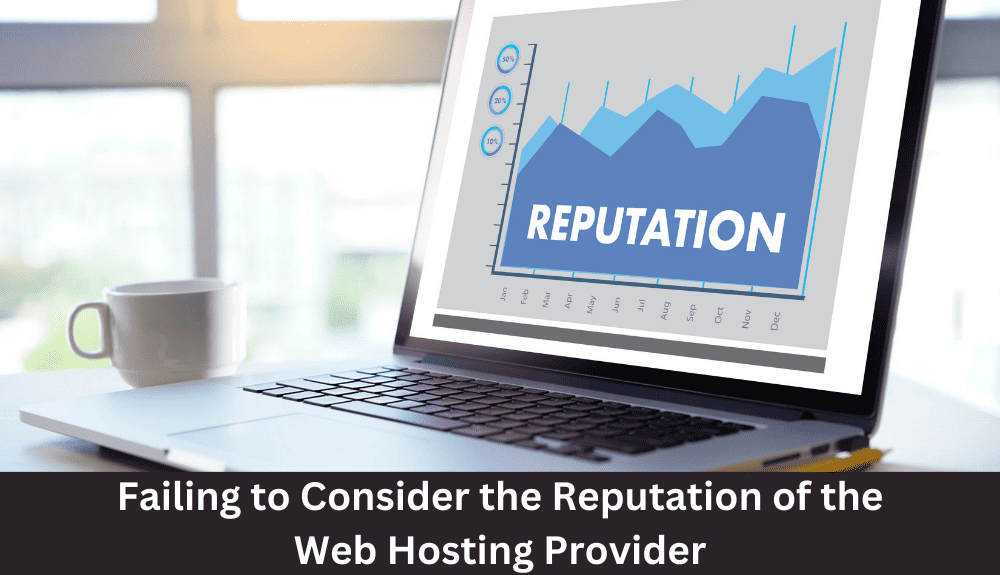
When choosing a web hosting provider, it’s crucial to take into account the reputation of the company. Failing to do so can lead to various issues and potential pitfalls. Here are some key points to consider:
1. Importance of Online Reviews:
Online reviews provide valuable insights into the experiences of other customers. Take the time to read reviews on trustworthy platforms to gauge the overall reputation of the web hosting provider. Look for patterns and trends in the feedback.
2. Research the Company’s Background:
Conduct thorough research on the web hosting provider’s history, including their establishment date and any notable achievements or milestones. This information can give you an idea of their experience in the industry and their ability to deliver quality services.
3. Seek Recommendations:
Ask for recommendations from peers or colleagues who have dealt with web hosting providers. Their first-hand experiences can provide valuable guidance and help you avoid potential pitfalls.
4. Assess Customer Support:
Evaluate the quality of customer support offered by the hosting provider. Look for features such as 24/7 live chat, email support, or a dedicated support hotline. A responsive and knowledgeable support team can make a significant difference in resolving any issues you may encounter.
5. Consider the Service Level Agreement:
Review the service level agreement (SLA) provided by the web hosting company. Ensure it covers essential aspects such as uptime guarantees, server maintenance, and backup procedures. A robust SLA demonstrates the provider’s commitment to delivering reliable services.
6. Check for Money-Back Guarantees:
Look for a web hosting provider that offers a money-back guarantee. This allows you to try their services risk-free and assess whether they meet your specific needs. A refund guarantee indicates the provider’s confidence in their product.
7. Evaluate the Company’s Online Reputation:
Assess the web hosting provider’s online reputation by searching for discussions or comments on forums, social media, and other online platforms. This can unearth valuable insights and help you gauge their reputation within the industry.
💡 key Takeaway: Failing to consider the reputation of a web hosting provider can lead to potential issues and dissatisfaction. It’s crucial to thoroughly research the company, read online reviews, assess customer support, and evaluate their online reputation before making a decision.
Conclusion
In conclusion, choosing the right web hosting provider is crucial for the success of your online business. By avoiding these seven common mistakes, you can save yourself from unnecessary headaches and ensure a smooth and reliable hosting experience. First and foremost, don’t make the mistake of solely focusing on price. While affordability is important, prioritizing quality and reliability should be your top concern. Research and read reviews to find a hosting provider that has a strong track record and positive customer feedback. Another common mistake is overlooking the importance of customer support. A responsive and knowledgeable support team can mean the difference between a minor hiccup and a major website downtime. Look for a provider that offers 24/7 customer support via various channels.

